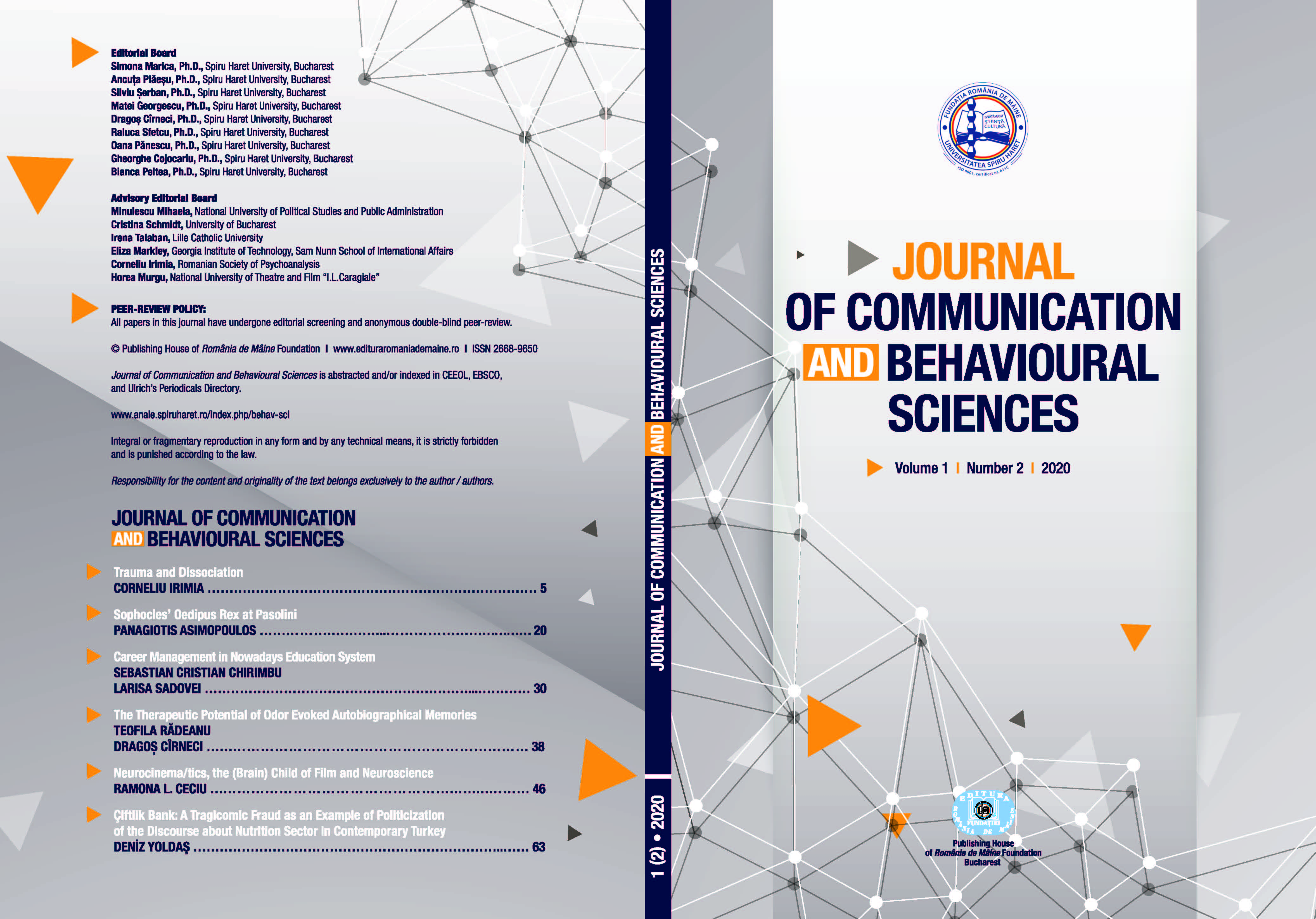SOPHOCLES’ “OEDIPUS REX” AT PASOLINI
SOPHOCLES’ “OEDIPUS REX” AT PASOLINI
Author(s): Panagiotis AsimopoulosSubject(s): Media studies, Film / Cinema / Cinematography, Theory of Literature
Published by: Editura Fundaţiei România de Mâine
Keywords: Oedipus Rex; Sophocles; tragedy; Pasolini;
Summary/Abstract: The tragic figure of Sophocles’ “Oedipus the King” functions diachronically as a favourite thematic basis of inspired creations and unparalleled artistic incarnations. The unconventional character of the legendary hero harmoniously adopts the dramatic codes of the ancient Greek tragedy. It emphatically expresses Oedipus’ existential agony which is transformed into metaphorical and mystical autobiography. He is strongly opposed to the relentless imperatives of the unpredictable Fate and he succumbs to the consequences of his shameful actions. However, the high moral and the amazing bravery lead Oedipus to his redeeming self-purification. He reasonably exercises a catalytic influence on later scholars, as he provokes the striking interest of ground-breaking theatre writers. Thus, in 1968, in the surrealist film “Edipo re”, Pasolini formalistically achieves the experimental interpretation of the ontological parameters that are closely related to the mythical background. At the same time, the filmmaker re-examines the primordial diptych of love and death. He portrays his problematic approach to cinematographic poetry and articulates an utmost modernistic discourse that is a perfect combination between pragmatic passions and dreamy elements. The anti-spiritual hero gradually emerges as a sacrificial victim of the entire social system; he enters into the intricate aspects of the collective subconscious; he recreates urban conventional mind-sets and breaks down crystallized structures. Although he is deeply aware of his inevitable crash, he predicts the violent release from the historical context and the radical redefinition of the physical order.
Journal: Journal of Communication and Behavioural Sciences
- Issue Year: 1/2020
- Issue No: 2
- Page Range: 20-29
- Page Count: 10
- Language: English
- Content File-PDF

